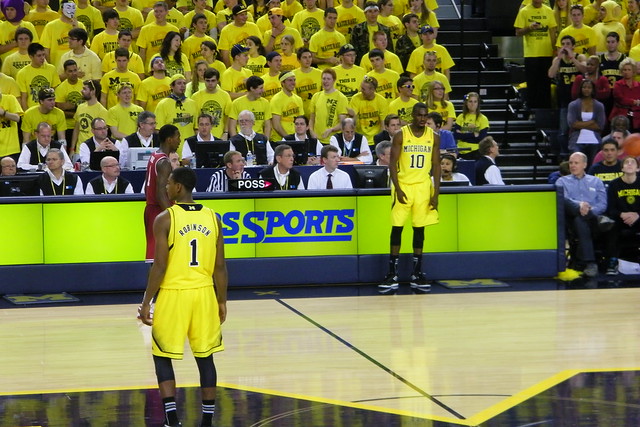Over the past two months, I have had the opportunity to attend two sporting events, namely a Cleveland Browns game and a Michigan Basketball game. At both these events, I went through the full experience. At the Browns game, I tailgated with traditional stadium foods like hot dogs and hamburgers, a greasy start to a fun afternoon. For the Michigan game, I came early for the opportunity to sit in the famed “Maize Rage” section, right behind the bench. After a full game of yelling and cheering, I barely had my voice left, but i did get the full experience of being in the student section of a basketball game, a wonderful opportunity that every student should pursue.
From these two events, one thing that I can certainly connect with them is the concept of “tradition”. Edmund Burke, a 18th century Irish thinker, accredited with the beginning of modern conservative thought, also believed in the importance of tradition. He believed that tradition was the best source of knowledge, backed by his famous quote “I put my foot in the tracks of my forefathers, where I can neither wander nor stumble.” In addition, Burke believed in the concept of “pleasing illusions”. These “illusions” are part of society that are true, but we cover them up by thinking they are better than what they really are.
Burke’s ideas, in my opinion, can be connected to the concepts of fandom I observed at these two sporting events. At the Browns game, playing against historical rivals the Pittsburgh Steelers, the tradition of this rivalry was clear. The “Dawg Pound”, the very passionate Browns fan section, was more lively than usual for this rivalry game. The history of this rivalry goes back for years, and the tradition of friction between the two fan sections(as the cities are so close by) is something that is special to be a part of. For the Michigan game, I got to be a bigger part of the tradition. From the fight song to the section being decked out in Maize, it was clear that the combination of fan tradition with the tradition and history of Michigan basketball was a wonderful combo. Burke would think that these two traditions for these two team should survive for eternity, Burke would be alright with incremental change, as traditions have stayed and have combined with today’s technology, but a complete stray from these traditions he would disagree with.
Another aspect of Burke I noticed at this came were the “pleasing illusions” I noticed at both games. Fans, in general, forget their pasts and current problems to all become one group for a day. At both games, everyone was a fan. No one was classed by how many problems they had or their status, instead, everyone was together for their love of the team at play. Burke would believe this was a “pleasing illusion” present at the stadiums. He would think it would be good to believe this “illusion” so that the game’s atmosphere would not be tainted. This can be revealed from his quote “To make us love our country, our country ought to be lovely.” This can be connected to both games as people become fans in order to enjoy the game together, and forget about their differences.
In conclusion, Burke’s ideas of tradition and pleasing illusions were clear at both of the games I attended. I believe these traditions and illusions are necessary for the spirit of the game to prosper, and for everyone to enjoy their time being a spectator, especially for two historically oriented teams.



